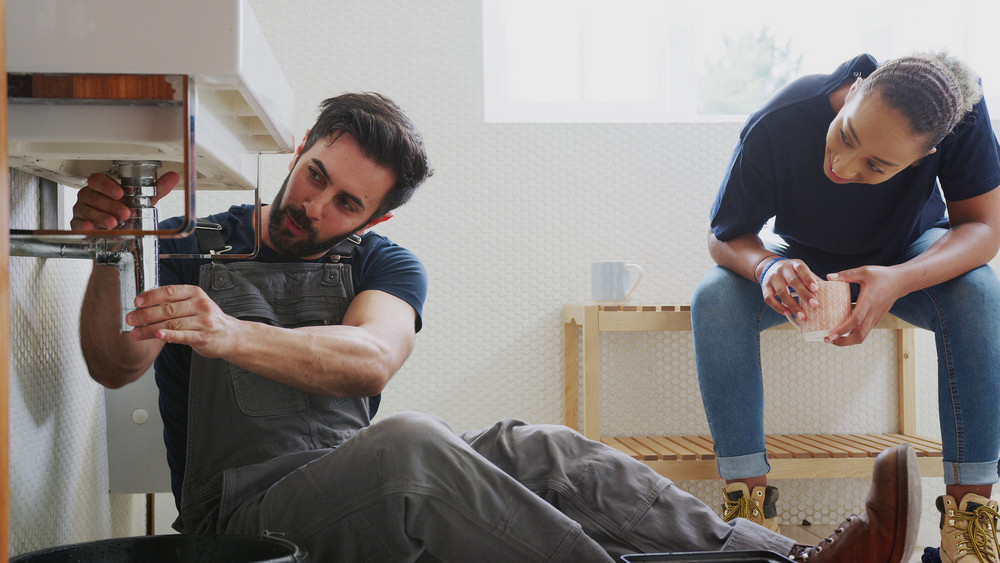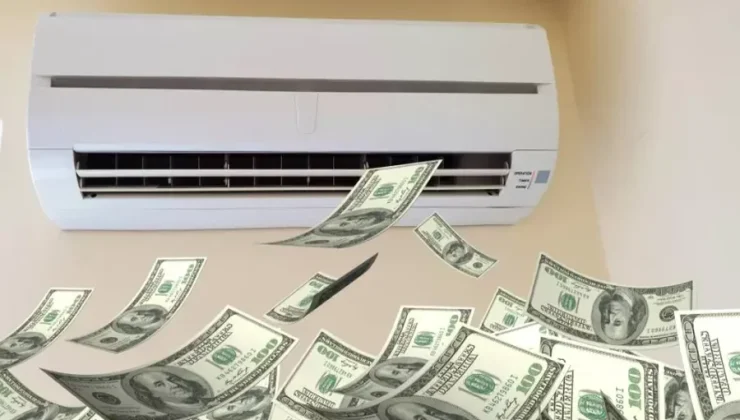Plumbing trouble rarely begins with a dramatic burst; it starts with tiny leaks and sticky valves that quietly waste money and energy. According to ComfyLiving, even small household leaks can add up to around 10,000 gallons of wasted water over a year, which is enough to inflate utility bills without you realizing why. That constant trickle also forces pumps and fixtures to cycle more than they should, accelerating wear on cartridges, seals, and motors. Left alone, what could have been a five dollar washer can turn into a costly service call and an ever rising water bill.
Structural Damage, Mold, and Air Quality
Water that escapes supply lines or drain traps migrates into drywall, subfloors, and framing, where it causes staining, swelling, and warping. Over time, moisture weakens fasteners, encourages corrosion on metal components, and undermines the integrity of flooring and cabinetry. Damp wall cavities become breeding grounds for mold, and spores can colonize quickly once materials stay wet. What begins as a small stain can escalate into demolition, remediation, and weeks of disruption if you delay repairs.
Water Heater Failures Can Be Dangerous
A neglected water heater is more than an inconvenience; it is a safety and property risk. Sediment buildup creates hot spots, reduces efficiency, and can lead to temperature swings at fixtures that increase scald risk. According to Forbes, a practical rule of thumb is to replace a water heater at about the 10-year mark, so units around a decade old deserve close evaluation and a plan for timely replacement. Ignoring anode rods, relief valves, and expansion control increases the chance of leaks, pressure spikes, and inconsistent temperatures.
Sewer Backups, Contamination, and Health Risks
Sewer and drain lines fail for predictable reasons like root intrusion, grease buildup, and collapsed sections. When they do, wastewater can back up through floor drains, showers, or toilets, damaging finishes and requiring specialized cleanup. Beyond the mess, exposure to sewage introduces pathogens and gases that put occupants at risk. Businesses may face closures, health inspections, and reputational harm while the contamination is addressed.
Business Impacts and Compliance Exposure
Reliable plumbing underpins operations in restaurants, clinics, rental properties, and offices. Hot water, functioning restrooms, and effective drainage are prerequisites for compliance and customer confidence in any facility. According to Jobber, the U.S. plumbing market is valued at about $126.4 billion, which underscores how essential these systems are to daily life and the broader economy. When maintenance is deferred, owners risk code violations, tenant claims, and costly downtime that erodes margins.
Early Warning Signs You Should Not Ignore
Plumbing systems often announce trouble before a major breakdown. Watch for irregular water pressure, a meter that spins when no fixtures are on, recurring clogs in the same location, or discolored patches on ceilings. Listen for pipe banging, hissing, or gurgling that points to pressure or venting problems behind the walls. Any musty odor near cabinets or a sulfur smell in hot water deserves prompt attention before hidden damage spreads.
A Practical Maintenance Game Plan
Prevention is straightforward and far cheaper than emergency repairs. Schedule an annual whole home or whole building inspection that checks shutoff valves, visible supply and drain lines, and overall fixture performance. Flush water heaters, test temperature and pressure relief valves, and evaluate the anode rod so corrosion does not accelerate unnoticed. Insulate exposed piping, protect hose bibs from freezing, and verify that pressure regulators and thermal expansion devices are functioning. Place point of use leak detectors under sinks and behind toilets, and label the main shutoff so every occupant can act quickly.
The Cost of Waiting
Waiting for a failure almost always multiplies the bill. A burst supply line can ruin flooring in minutes, while a hidden shower pan leak can quietly rot framing for months. Sewer backups may require professional disinfection, and a failing water heater can damage stored belongings nearby. Treat routine maintenance as an investment that protects comfort, safety, and the long term value of your property while keeping your daily routine on track.
Why Action Now Pays Off
Well maintained plumbing preserves water, energy, and the useful life of every connected fixture. It keeps interior finishes dry, indoor air healthy, and hot water reliable at the tap. You also reduce surprise disruptions that derail workdays or family plans. Acting early turns small, predictable tasks into savings, and it keeps your property resilient for years to come.








